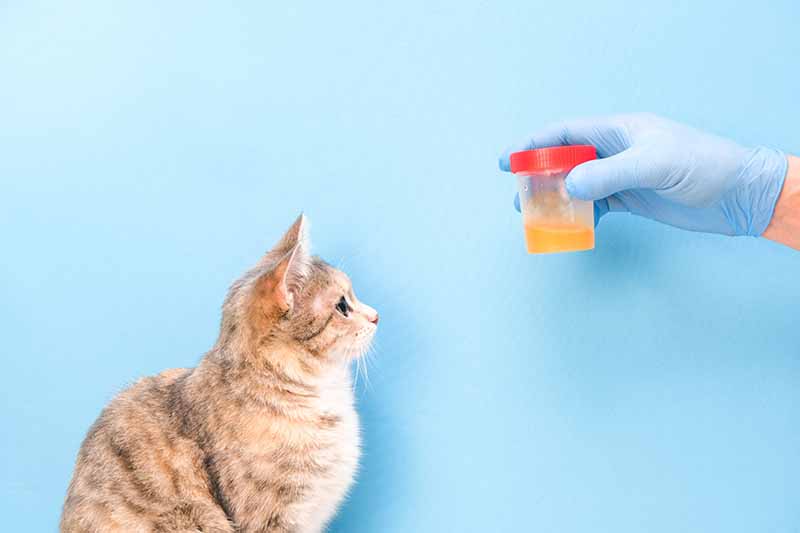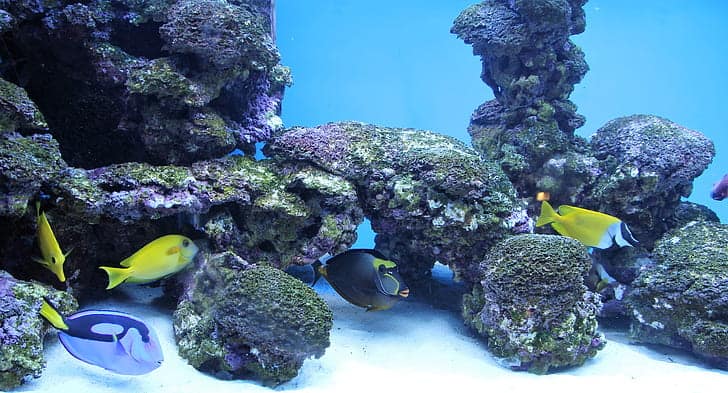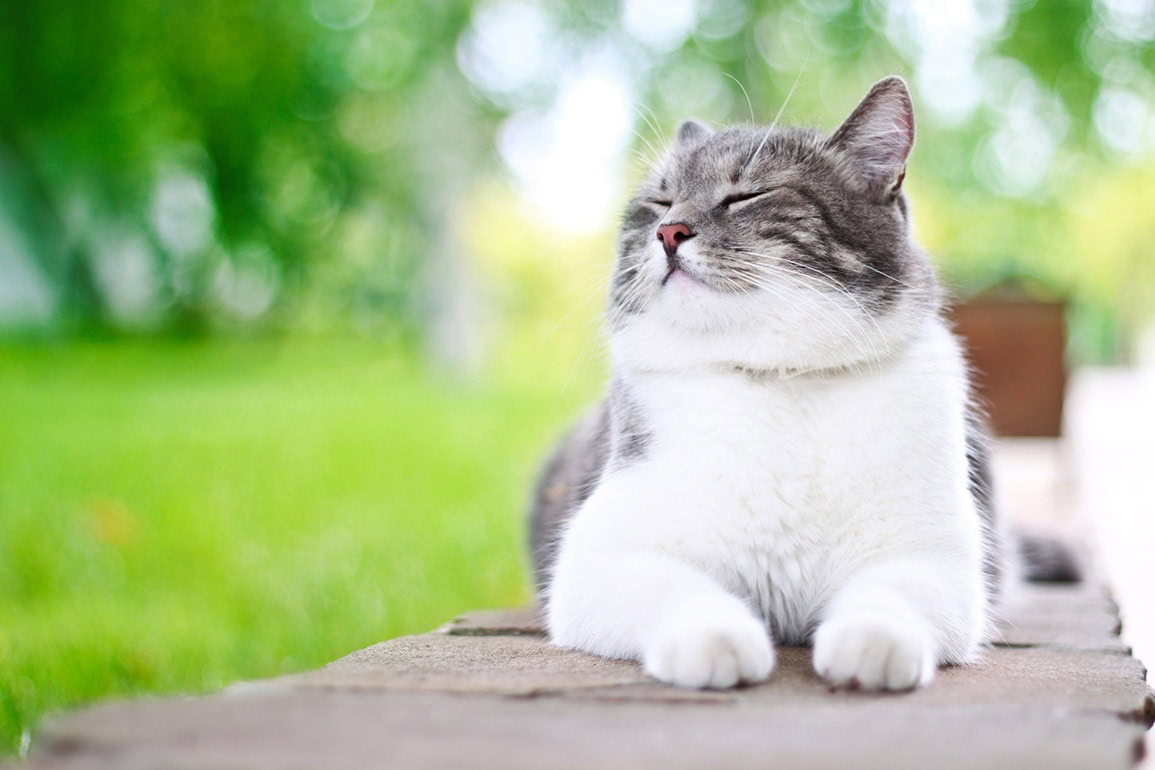VET APPROVED

The information is current and up-to-date in accordance with the latest veterinarian research.
Learn more »Click to Skip Ahead
When you have cats, it is not uncommon for the litter box to occasionally start stinking up the house. It is your cat’s bathroom, after all. Sometimes, though, you might notice your house beginning to smell distinctly like ammonia. That would be due to your cat’s urine.
But why does it smell like that, and is it normal? It is normal—to an extent—for your cat’s urine to smell a bit like ammonia, so if you only smell it mildly, you shouldn’t worry. However, if the odor is really strong, that’s less normal. There are several reasons that the ammonia aspect of your cat’s urine could be more pungent than usual.

Why Does Cat Urine Smell Like Ammonia?
Cat urine typically doesn’t smell like much because it mainly consists of water, much like our own. Other than water, urine is made up of uric acid, urea, sodium chloride, creatine, detoxified substances, and electrolytes. Urine left to sit will eventually have bacteria start breaking down the urea, which releases the ammonia odor.
It’s rare to get that strong ammonia scent if your cat is using the litter box like usual because the litter will cover the odor. Typically, you won’t notice this smell unless your cat is marking territory around the house. However, there are a few reasons your cat’s urine can smell more like ammonia than usual, even when it’s in the litter box.
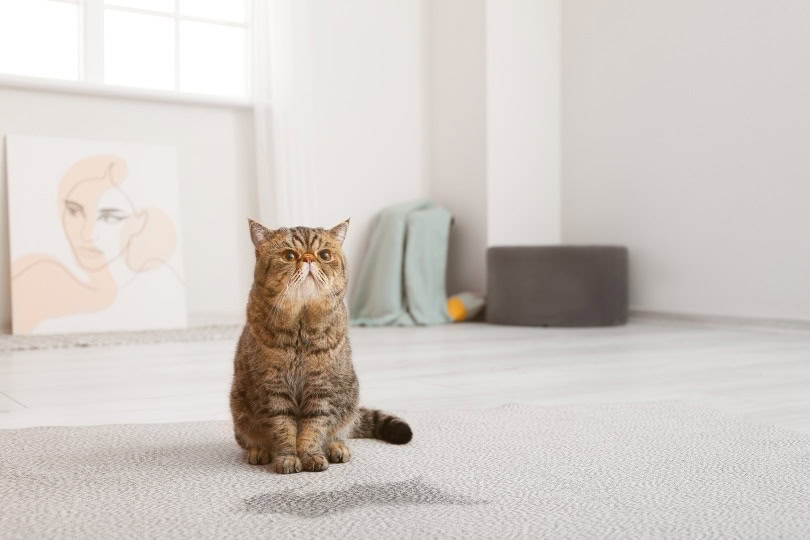

The 5 Reasons Your Cat’s Urine Smells Like Ammonia
Here are some of the reasons, other than not using the litter box, that your cat’s urine could be giving off a more pungent ammonia odor than it typically does.
1. Dehydration
Cats aren’t always fans of drinking water. It’s suspected this is because of their history as predators that got most of their moisture from their prey, but today’s cat usually isn’t out hunting. So, if your pet isn’t drinking enough or getting enough water from wet food, they could easily become dehydrated. They could also be suffering from an underlying illness that’s making them dehydrated. Since dehydration means less water in the urine and more concentrated waste, it can make the ammonia smell of their urine stronger.
Keeping your cat hydrated can be surprisingly difficult. A filtered water fountain like Hepper's Stainless Steel Cat Water Fountain can provide your cat with safe, flowing water free from dangerous bacteria and bad smells.
This dishwasher-safe fountain features advanced triple filtration, three different flow modes, and a modern, minimalist design. At PangoVet, we've admired Hepper for many years, and decided to take a controlling ownership interest so that we could benefit from the outstanding designs of this cool company!
2. Inadequate Diet
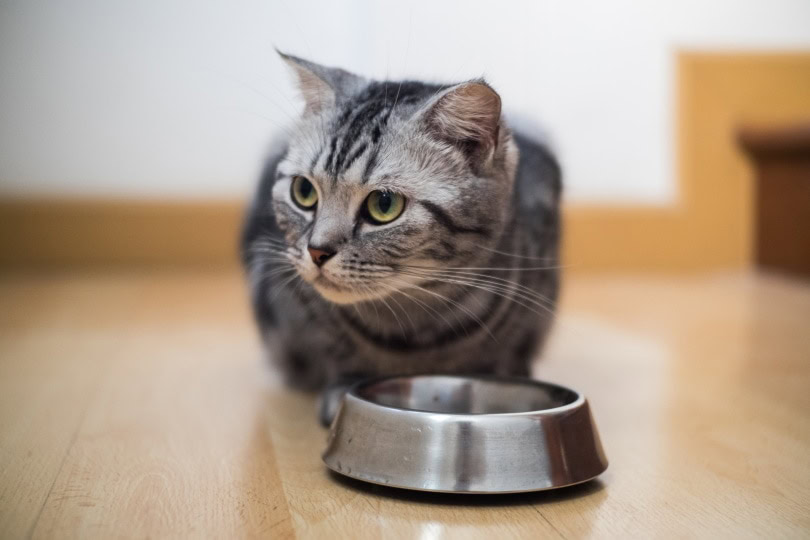
As a cat owner, you’re aware that cats are obligate carnivores, meaning they need meat to thrive. Cats also require a lot of protein in their diets, which they get from meat. One of the reasons that protein is so vital to cats is the amino acids that it contains; deficiencies in the amino acids can lead to health problems for your pet. One amino acid in particular—arginine—is essential in getting rid of ammonia from your cat’s body. So, if they aren’t eating enough protein and have an arginine deficiency, their urine could smell more like ammonia than it typically does (and they might end up with a toxic amount of ammonia in their blood).
3. Hormones
If you have a male kitty that’s not been neutered, he will emit powerful and pungent hormones when he goes to the bathroom, which will make his urine reek. This is done to mark his territory—it’s a message to other males to stay away and an invitation to any females in the area.
4. Urinary Tract Infection
If your cat has a urinary tract infection, chances are good that they will use the bathroom outside the litter box, leading to stinky urine odors. The stronger ammonia smell could also be caused by the bacteria that are present and causing the infection. Other signs that your cat could have a urinary tract infection include frequent bathroom visits, trouble urinating, and blood in the urine.
5. Illness
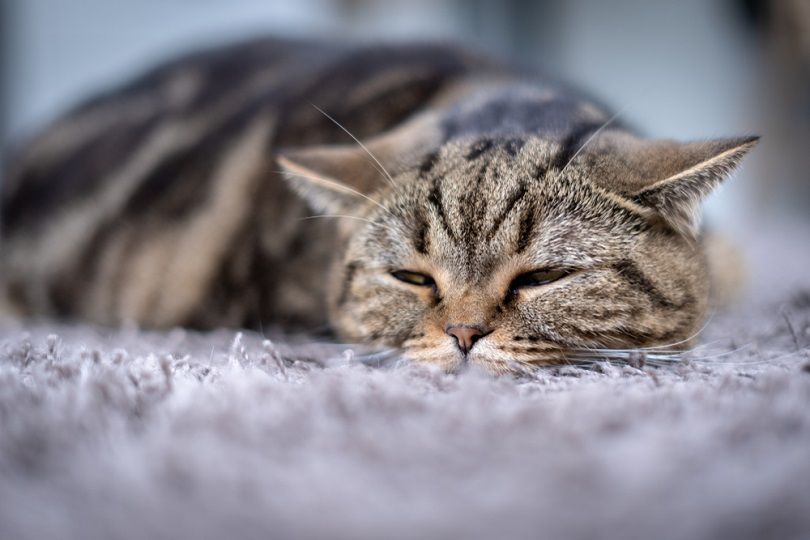
It’s not just urinary tract infections that can cause urine to smell worse; other illnesses can do the same. One example is proteinuria, in which excess protein builds up in your cat’s urine. If you have an older cat, they could be having issues with their kidneys, as cat kidneys tend to stop functioning with age, which can also lead to more potent urine odors.

How to Deal With Pesky Litter Box Odors
There are a few ways to combat the smells coming from your cat’s litter box. Of course, regular scooping will help keep odors at bay but you can also wash your litter box each time you add new litter and sprinkle in a bit of a deodorizer. The combination of these three things will help prevent odors from lingering in your cat’s litter box area.
Our Favorite Products
Incorporating Hepper's Advanced Bio-Enzyme Pet Stain & Odor Eliminator Spray and Litter Deodorizer fights even the toughest litter box smells. First, by keeping your litter box free of stuck-on messes each time you replace the litter, and second, by neutralizing odors upon contact.
| Image | Product | Details | |
|---|---|---|---|
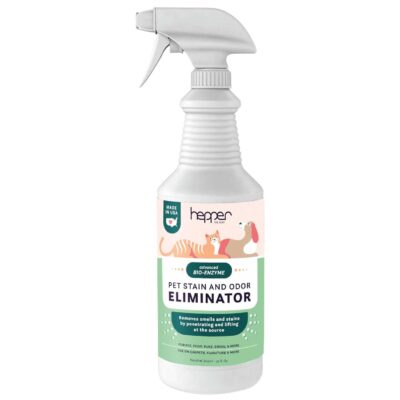 |
Hepper Advanced Bio-Enzyme Pet Stain & Odor Eliminator Spray |
|
Check Price |
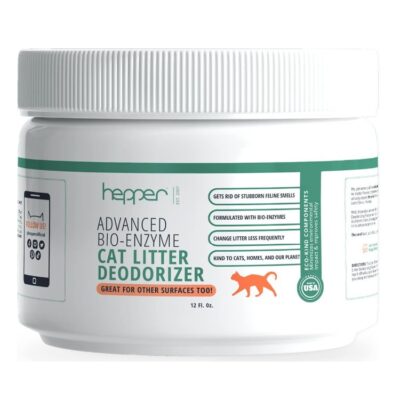 |
Hepper Cat Litter Deodorizer |
|
Check Price |
At PangoVet, we've admired Hepper for many years, and decided to take a controlling ownership interest so that we could benefit from the outstanding designs of this cool company!

Final Thoughts
It’s normal for your cat’s urine to smell a bit like ammonia, but it shouldn’t usually smell too much like it. Most of the time, you shouldn’t notice a smell (unless your pet has decided not to use the litter box). If you are smelling a strong ammonia odor, there are several reasons, including issues with your kitty’s food and drink, illness, infections, and hormones. You can easily change your cat’s diet and encourage them to drink more water. You can also fix hormone issues by neutering your cat. As for the rest, it’s advised that you take your pet to the vet, so they can figure out the exact cause of the increased smell of ammonia and remedy the situation.
See also:
- https://www.mayoclinic.org/symptoms/urine-odor/basics/causes/sym-20050704
- https://www.mcgill.ca/oss/article/you-asked/why-does-cat-urine-smell-so-bad-and-what-can-i-do-about-it
- https://veterinarypartner.vin.com/default.aspx?pid=19239&id=4951508
- https://vetnutrition.tufts.edu/2020/12/tips-and-tricks-to-get-your-cat-to-drink-more-water/
- https://www.petmd.com/cat/symptoms/is-my-cat-dehydrated
- https://www.healthline.com/health/urine-smells-like-ammonia
- https://www.aspca.org/news/why-cant-my-cat-be-vegan
- https://vetnutrition.tufts.edu/2019/12/how-much-protein-should-my-pet-get/
- https://www.nap.edu/resource/10668/cat_nutrition_final.pdf
- https://www.petmd.com/cat/care/evr_ct_ultimate-guide-to-eliminating-cat-pee-smell
- https://vcahospitals.com/know-your-pet/urinary-tract-infections-utis-in-cats
- https://www.petmd.com/cat/conditions/urinary/c_ct_proteinuria
Featured Image Credit: lev.studio, Shutterstock
